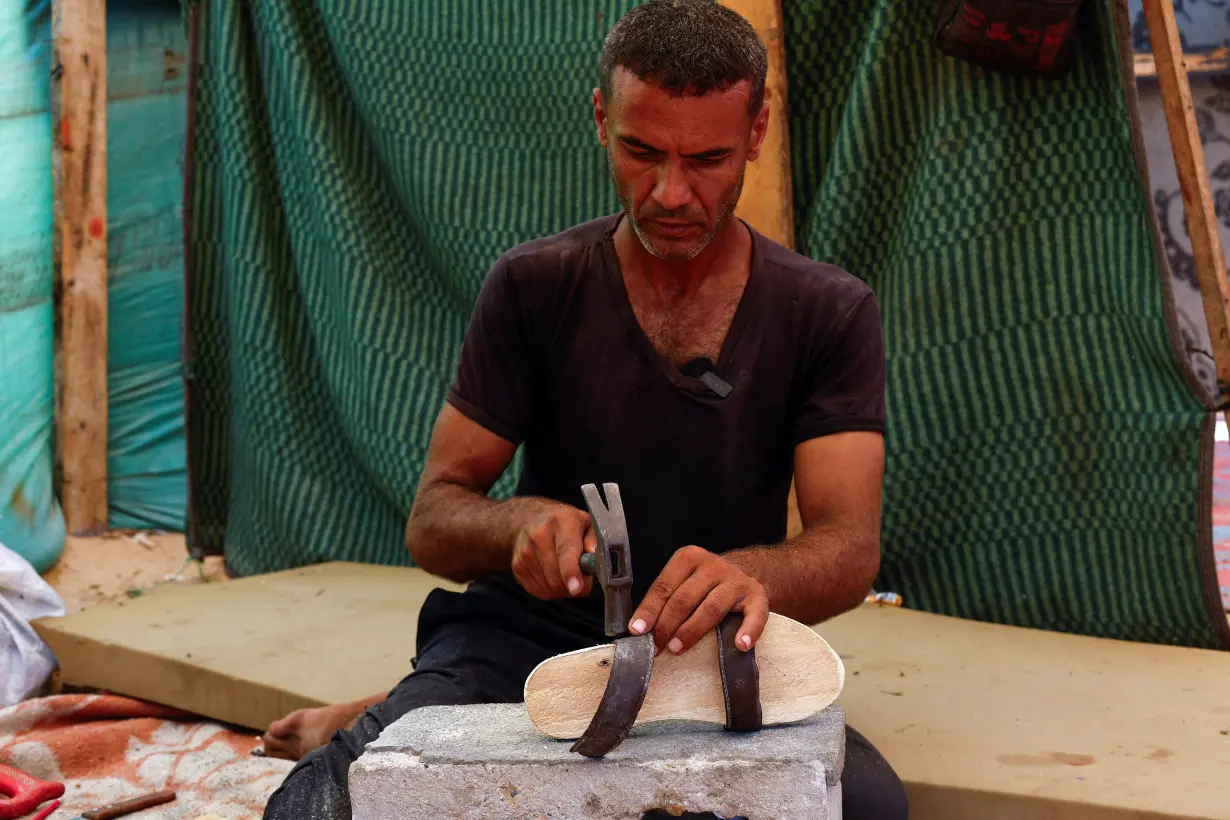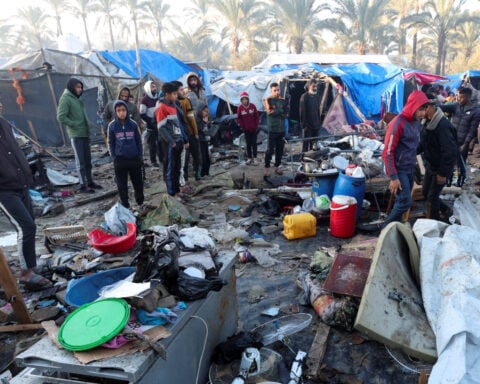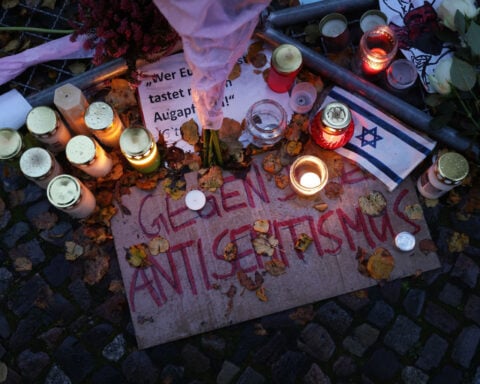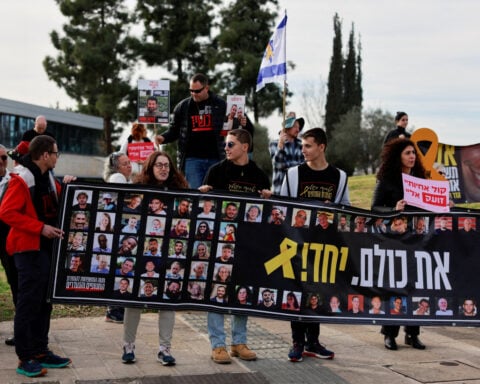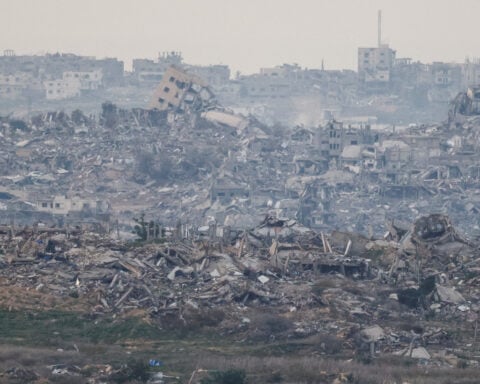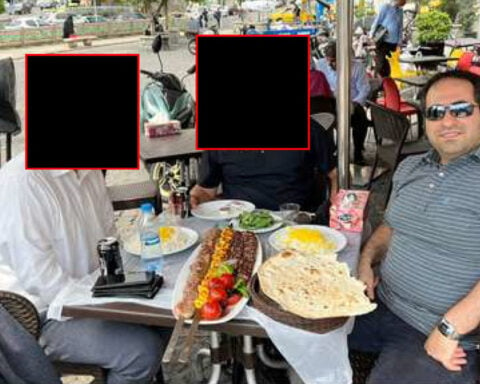By Mohammed Salem
KHAN YOUNIS, Gaza (Reuters) - Twelve-year-old Heba Dawas lost her footwear in the chaos while fleeing Israel's military offensive in Gaza.
So her carpenter father made wooden-soled sandals for her so she can tread more safely through the tonnes of rubble, hot sand and twisted metal of the besieged Palestinian enclave.
"When we were displaced, we started running and the sandals broke," said Heba, who lives in a tent camp with her family in the southern Gaza city of Khan Younis.
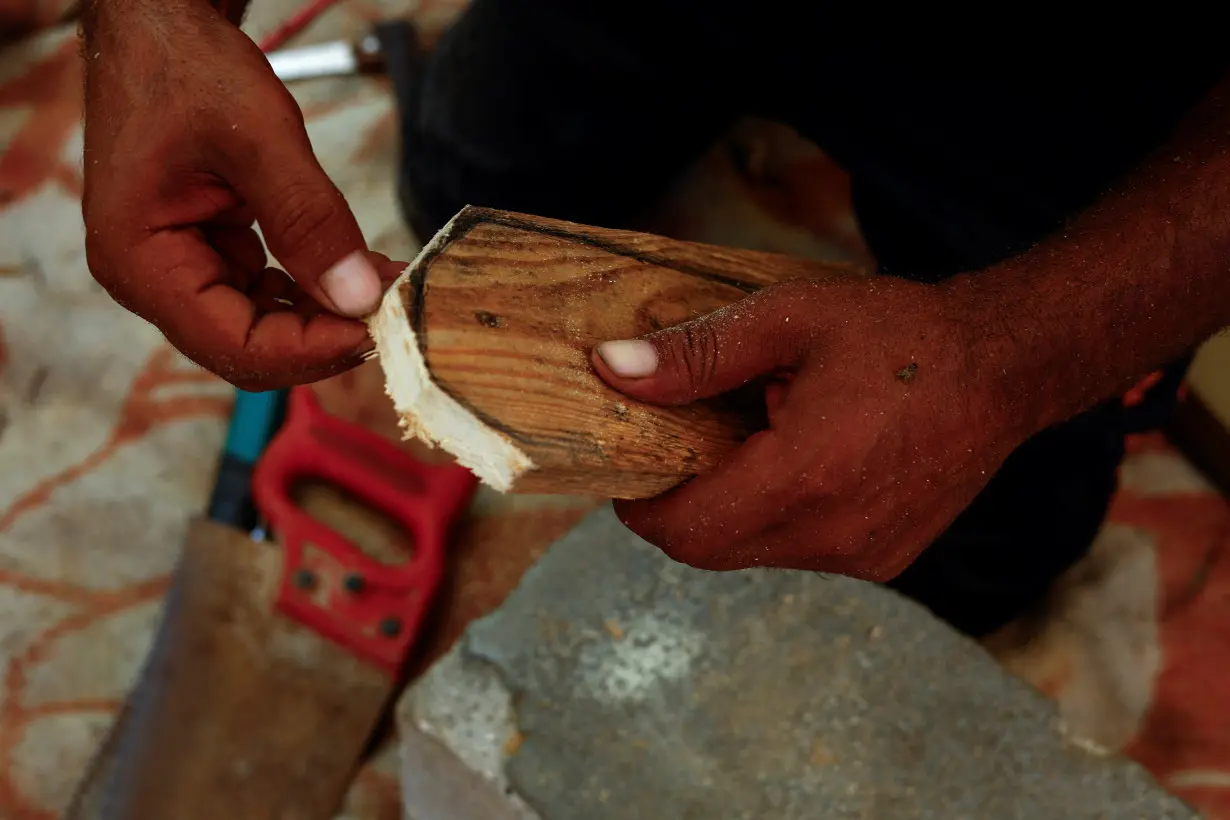
"I threw them off and started running. Our feet became very hot. So, we had to make sandals from wood," she said, walking on hot sand with her new footwear.
Her father Saber Dawas, 39, came up with the idea after finding the price of sandals too expensive. Now his daughter does not have to go barefoot amid the ruins of Gaza.
"I had to make a tailored size for each daughter," he said.
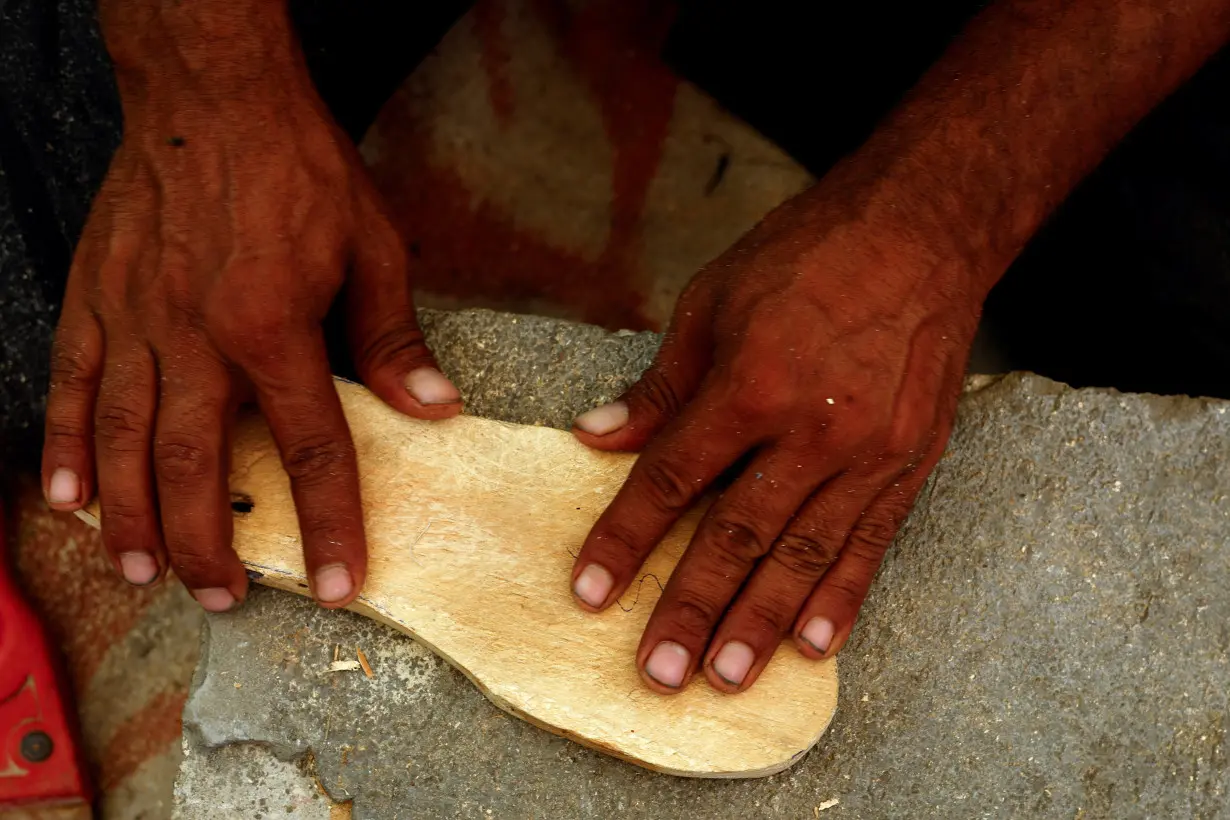
SANDALS IN DEMAND
Soon enough, his neighbours noticed him making the sandals and started asking him to make some for their children.
Using basic carpentry tools, he made them for "a symbolic price," he says.
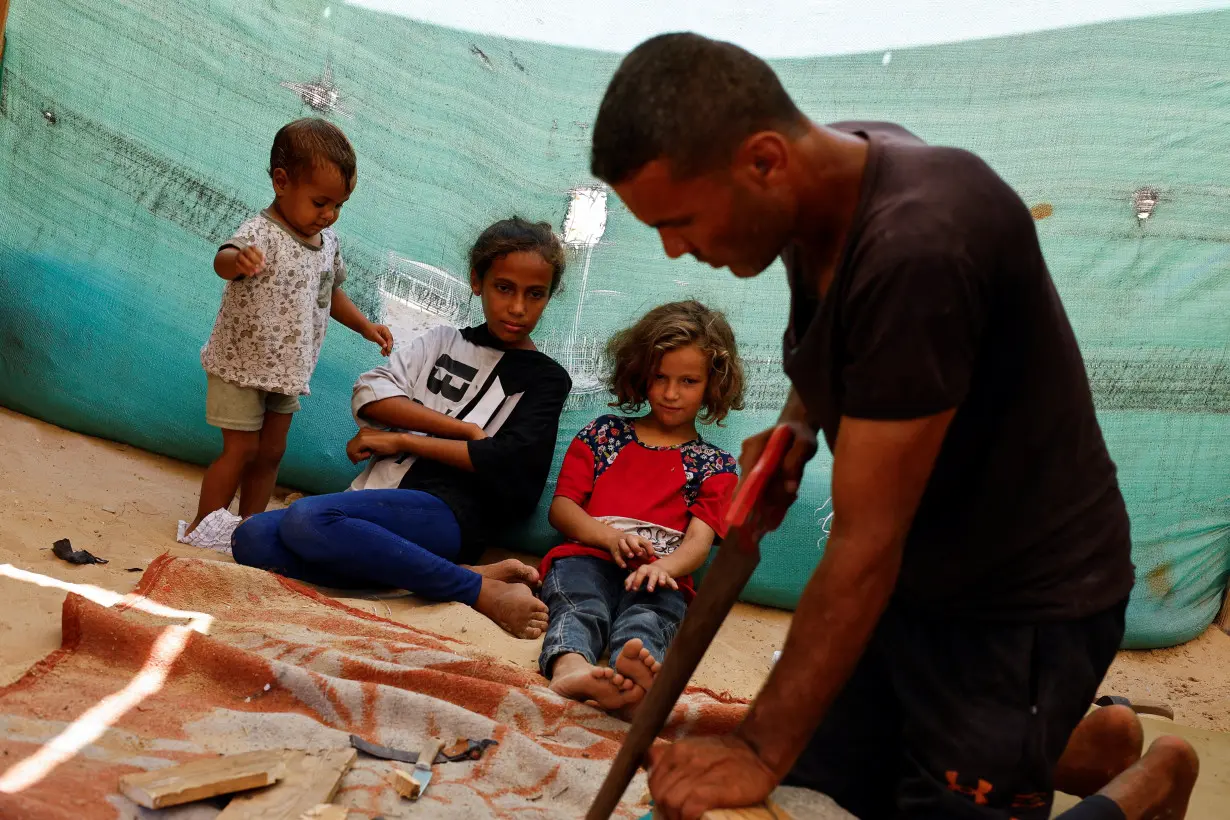
The sandals have a wooden sole and a strap made of a rubber strip or fabric. But there was a challenge in finding more wood because Palestinians needed it for cooking and fires.
"Everything here in Gaza is difficult to find," Dawas said, rubbing the base of a sandal with one of his young daughters watching by his side.
Making wooden sandals may ease the pressure of the war but life is still fraught with challenges in Gaza, where the Israeli offensive against Hamas has killed more than 41,000 Palestinians, according to the Gaza health ministry.
Nearly 2 million people have been displaced, often repeatedly, Gazan health officials say.
Hamas triggered the war on Oct. 7 when the Palestinian militant group attacked Israel, killing 1,200 people and taking over 250 hostage, according to Israeli tallies.
A humanitarian crisis has gripped Gaza since then with Palestinians struggling to find food, water and fuel as they move up and down the territory seeking a safe place to shelter.
The United States, Qatar and Egypt have failed to secure a ceasefire through mediation after many attempts.
The border crossing with Egypt has been shut, bringing the flow of aid and basic goods such as shoes to a halt.
"People now are walking around with mismatched shoes," said Momen al-Qarra, a Palestinian cobbler repairing old shoes in a little market in Khan Younis.
"If the situation continues like this for two weeks or a month at the most, without the opening of the border, people will be barefoot."
(Reporting by Mohammed Salem, Writing by Nayera Abdallah, Editing by Michael Georgy and Angus MacSwan)

 Stock market today: Asian stocks mixed ahead of US inflation data
Stock market today: Asian stocks mixed ahead of US inflation data
 TikTok seeks to reassure U.S. employees ahead of Jan. 19 ban deadline
TikTok seeks to reassure U.S. employees ahead of Jan. 19 ban deadline
 US won't seek charges in unarmed Black motorist Ronald Greene's fatal 2019 arrest
US won't seek charges in unarmed Black motorist Ronald Greene's fatal 2019 arrest
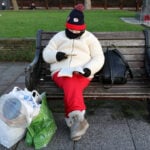 Euro zone households could increase consumption, ECB chief economist says
Euro zone households could increase consumption, ECB chief economist says
 Foreigners sold South Korean equities last month by most since early 2020
Foreigners sold South Korean equities last month by most since early 2020
 As fires ravage Los Angeles, Tiger Woods isn't sure what will happen with Riviera tournament
As fires ravage Los Angeles, Tiger Woods isn't sure what will happen with Riviera tournament
 Antetokounmpo gets 50th career triple-double as Bucks win 130-115 to end Kings' 7-game win streak
Antetokounmpo gets 50th career triple-double as Bucks win 130-115 to end Kings' 7-game win streak
 No 97 Laura Siegemund upsets Olympic champion Zheng Qinwen at the Australian Open
No 97 Laura Siegemund upsets Olympic champion Zheng Qinwen at the Australian Open
